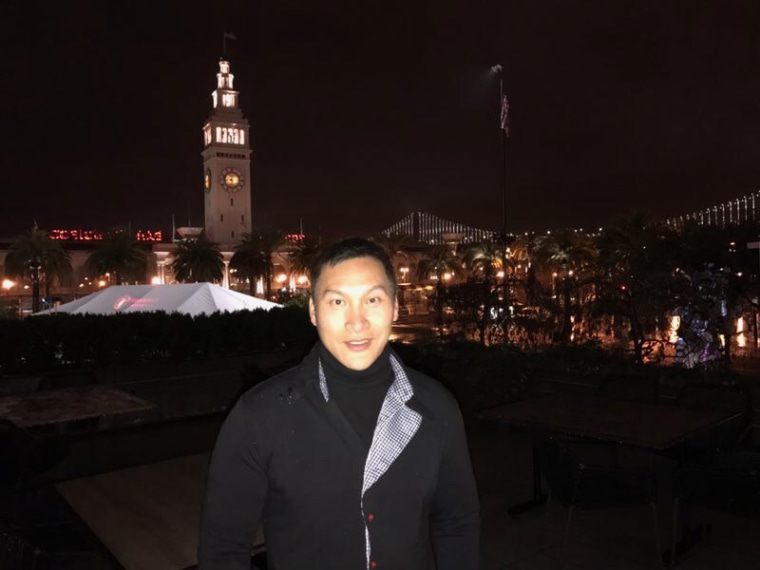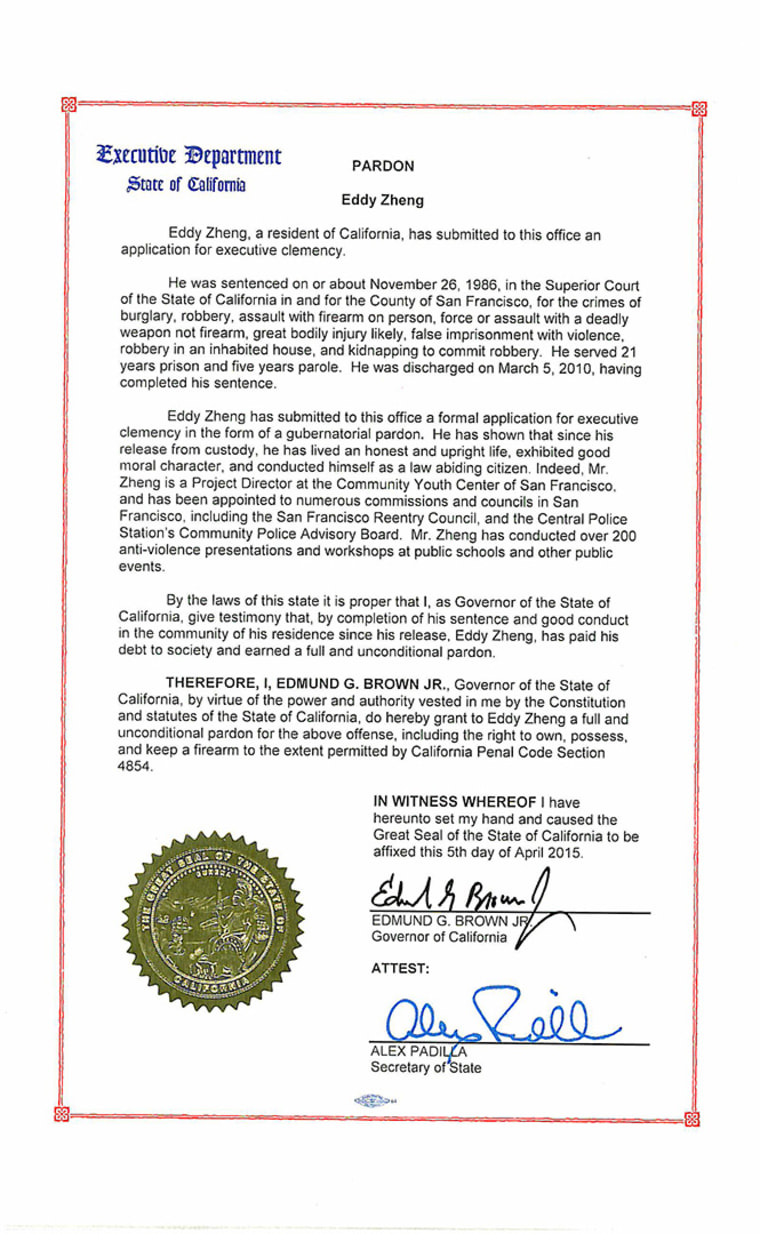After nearly two decades behind bars and almost a decade in deportation limbo, a formerly incarcerated Asian American who faced life in prison will become a U.S. citizen.
On Thursday morning, Xiao Fei “Eddy” Zheng, 47, will take an oath of allegiance at a naturalization ceremony in Oakland, California.

“For me, my family, my lawyers, my community who supported me all these years, [my citizenship] is definitely a triumph for everyone,” Zheng told NBC News. “It’s something people never thought was possible legally or otherwise. And the fact that we were able to overcome all the challenges and being able to really become a citizen of the United States, despite my past, is a testament of the willpower of the community and myself.”

Zheng immigrated to the United States from China at the age of 12. At the age of 16, he was tried as an adult for kidnapping and robbery and sentenced to life in prison. He spent 19 years there — during which he earned a GED diploma and associate degree — before being paroled by former California Gov. Arnold Schwarzenegger in 2004.
Upon his release from prison, Zheng was detained by the Department of Homeland Security pending deportation to China. He spent the next several years living in deportation limbo while waiting for the country to issue travel documents.
It was 2007 when Zheng left deportation holding and rejoined society.
While in limbo, Zheng became a well-known community leader who worked to help at-risk youth. He became active at the Community Youth Center of San Francisco, and received a fellowship to help current and previously incarcerated individuals transition back to society as productive citizens.
In 2015, Zheng was pardoned for his offense by California Gov. Jerry Brown, who said Zheng had “paid his debt to society and earned a full and unconditional pardon.”
As a U.S. citizen, Zheng looks forward to being able to fully engage in the democratic process as a citizen who can vote and perform jury duty.
“What people don’t realize sometimes is when people, whether voluntarily or forcefully, migrate to another country, there’s a lot of trauma they have to deal with, like displacement and acculturation. ”
His family from Hong Kong, one of his biggest advocates who lives in Boston, and San Francisco Supervisor Jane Kim are expected to be in attendance, according to Zheng’s lawyer.
“I’m super excited just knowing the challenges that I had to overcome to become a citizen. It feels like it’s surreal right now,” Zheng said.
Zheng currently serves as co-director of the Asian Prisoner Support committee. He is also the subject in the documentary “Breathin’: The Eddy Zheng Story,” which won the audience award at the Center for Asian American Media Festival in 2016.
He said he hopes his story will encourage other Asian Americans, Pacific Islanders, and immigrants who may be facing similar situations to see that transformation, redemption, and change are possible.
Zheng also hopes that others will understand that for immigrant youth who committed or commit crimes like he did nearly 31 years ago, it’s not their intention to hurt other people.
“What people don’t realize sometimes is when people, whether voluntarily or forcefully, migrate to another country, there’s a lot of trauma they have to deal with, like displacement and acculturation,” Zheng said. “We have to understand that dynamic and provide equitable resources so they have the opportunity to discover their potential as a human being.”
Follow NBC Asian America on Facebook, Twitter, Instagram, and Tumblr.